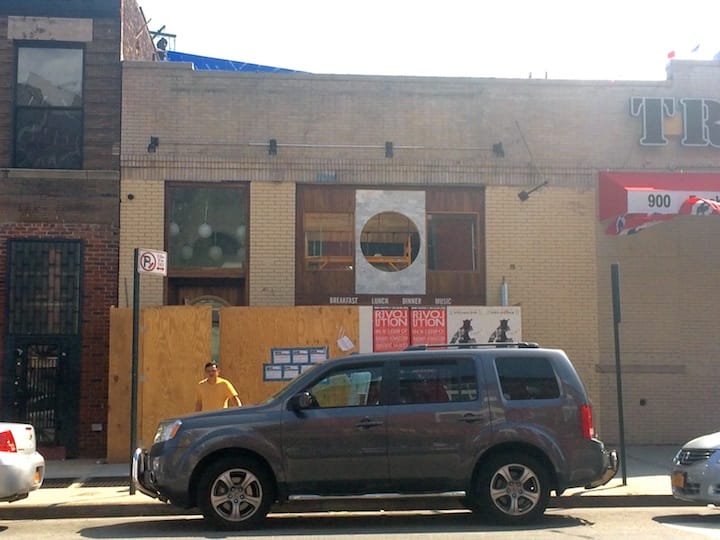42nd Annual International African Arts Festival Brings Discussion and Culture to Fort Greene

https://vimeo.com/70147558
(Video by Anna Teregulova)
The 42nd annual International African Arts Festival took place in Fort Greene last week, so we took out a video camera and tried to take in as much of the fun as possible.
At P.S. 267, across from Commodore Barry Park, the New York chapter of the National Association of Kawaida Organizations held its annual symposium on July 6. During the symposium’s morning panel, “Jitu Weusi and the Education Challenge,” Dr. Segun Shabaka described life at Uhuru Sase Shule, Swahili for “Freedom Now School,” an independent institution that Mr. Weusi, a native of Bedford-Stuyvesant, founded in Brooklyn in the late 1960s.
Subsequent panels addressed topics such as violence in the Congo, the NYPD’s Stop and Frisk policy, and unsolved murder cases from the movement for Civil Rights in the 1960s.
Meanwhile, in Commodore Barry Park, various vendors and representatives of cultural organizations set up under tents and in shady spots. We saw a chain link fence transformed into a display wall for leather sandals, tablefuls of African beauty products – including bars of soap made with milk chocolate – and kitchens serving Jamaican and southern American cuisine.
Lauryn Jackson, a board member of the Central Brooklyn Jazz Consortium, talked about the importance of the International African Arts Festival as a community event. Khi Gilkey, who traveled to Fort Greene from Atlanta with his mother and brother to sell a hair styling tool called the Wrap-A-Loc, said that attending the festival felt good and made good business sense.
After visiting the park, we headed south to witness the start of the IAAF parade at the intersection of Vanderbilt and Fulton Avenues. There, we watched the Berean Community Drumline, based in Crown Heights, and an FDNY recruitment band.
We also saw artist Sandra Morris Bell’s parade float version of a Ndunga, a Congolese costume meant to signify the presence of injustice in a community. Bell made the body of her Ndunga with banana leaves and strips of brown sackcloth, and used copper to make its face.
With a person on either side and a driver hidden behind banana leaves, the Ndunga drove alongside the drummers, horn players and other marchers walking north to Commodore Barry Park, where the festival continued into the night.
Speaking near the end of the festival on Sunday night, Basil Mchawi, the IAAF chairman, said that the event has become a model for festivals in Brooklyn.
“When we came to the park 10 years ago, there were no major events. We were the only one,” he said.
Now, Commodore Barry Park also hosts the Afropunk Fest, an annual music, culture and skateboard festival that returns in late August.
When we asked Mchawi when planning begins for the 2014 International African Arts Festival, he replied immediately.
“Tomorrow,” he said, before recalling that he had already spoken with a staff technician about enhancing next year’s experience.
Locals, do you have pictures or video of the music and dance performances from the festival? Send them to us at TheNabe@TheNabe.me.




